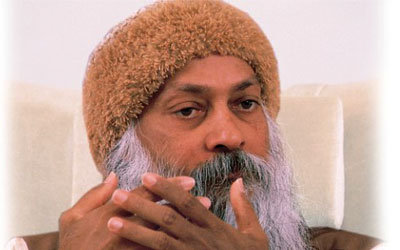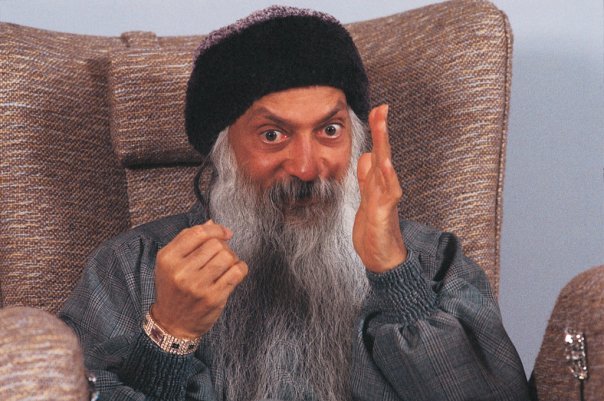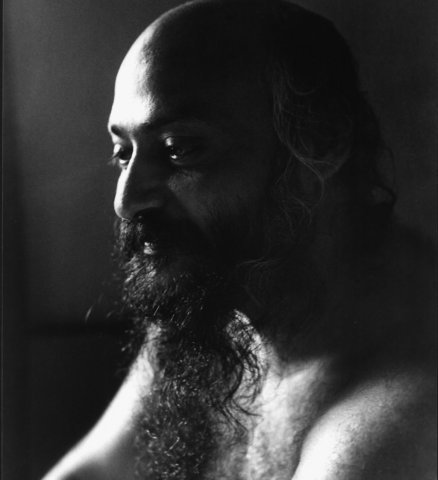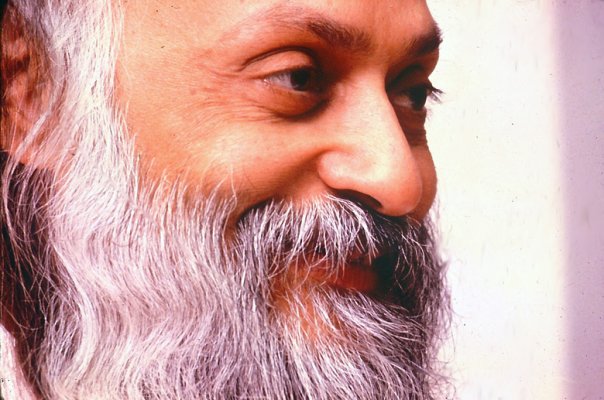Osho trích dẫn về Nirvana
- No mind is the door of Nirvana.
- Tâm trí không bao giờ đạt đến niết bàn. Trên thực tế, tâm trí thậm chí không thể hình dung ý tưởng về niết bàn. Niết bàn … chính từ đó có nghĩa là sự chấm dứt của tâm trí, it is annihilation of the mind.
- When you are in a state of no-mind, something unimaginable, unbelievable, unpredictable, inexpressible, is. experienced. Bạn có thể gọi nó là Chúa, bạn có thể gọi nó là sự thật, bạn có thể gọi nó là NIRVANA, or whatsoever you want to call it.
- Everything is made of the same stuff, the same existence, the same consciousness of no-mind; only names differ. Bạn có thể gọi nó là bất cứ thứ gì — không phải là thần học; you can call it salvation; you can call it liberation. But these are different names of the same space which accurately described is just no-mind, or beyond the mind. You appear in a space which has no limits, no boundaries, and suddenly you become aware that your being has been here since eternity, and it is going to be here forever. This very no-mind is the buddha, and this very moment is the lotus paradise. Bạn không cần phải đi đâu cả. You have to just sink inwards to find the bottom of your being.
- Mind dissolves only when you don’t choose. And when there is no mind, you are for the first time in your crystal clarity, for the first time in your original freshness. For the first time your real face is encountered. Mind is not there — the divider. Now existence appears as one. Mind has dropped; the barrier between you and existence is no more. Now you can look at existence with no mind. This is how a sage is born. With the mind — the world. With no mind — sự tự do, MOKSHA, KAIVALYA, NIRVANA. Cessation of the mind is cessation of the world.
- This is what we have called nirvana — cessation of your being completely, as if a drop has dropped into the ocean. and has become the ocean. The wave disappears, individuality is no more, you have become the whole. And when you have become the whole — only then you are really healthy; that is why Lao Tzu says: The sage is not sickminded. In fact the sage has no mind. How can he be sickminded?
- Religious freedom is freedom not from somebody else, but from yourself. You are no more. Because you are no more, a few masters in the East have called it anatta — no-selfness. Buddha called it nirvana — which is very close to anatta, no-selfness, or selflessness — just a zero, a profound nothingness surrounding you. But it is not emptiness, it is fullness: fullness of being, of ultimate joy, fullness of being blessed, fullness of gracefulness. All that you have known before is no more there; hence is it empty of all that. But something new, absolutely new you had not even dreamt about, is discovered.
- There are two laws. One law is of the mind. With the law of the mind you go on creating hell around you; friends become foes, lovers prove enemies, flowers become thorns. Life becomes a burden. One simply suffers life. With the law of mind, you live in hell wherever you live. If you slip out of the mind, you have slipped out of that law, and suddenly you live in a totally different world. That different world is nirvana. That different world is God. Then without doing, everything starts happening.
- Each person has to come back to the Garden of Eden again. The doors are not closed. ‘Knock, and they shall be opened unto you. Hỏi, and it shall be given.’ But one has to turn back. The path is from doing towards happening, from the ego towards no-ego, from mind towards no-mind. Không có tâm trí là tất cả những gì thiền định là về. That different world is nirvana. That different world is God.
- Heaven and hell are only two sides of your mind. The religions that were born outside India have remained with these two ideas, heaven and hell. They could not rise above them. đạo Do Thái, Kitô giáo, Islam — all the three religions born outside India, have no idea of something transcendental. In India we have a third word MOKSHA, NIRVANA.
- In the East the work has moved into a totally different dimension. We have to let this mind go. Each part of the mind has to be dropped slowly slowly. In deep awareness, thiền định, suy nghĩ biến mất. Sooner or later mind becomes contentless, and when the mind is contentless, it is no-mind — because mind as such is nothing but the whole process of thought. When you are without thought, not even a single thought stirring in your being, then there is no-mind. You can call it individuation, you can call it SAMADHI, YOU can call it NIRVANA or what you will.
- Look at life, and by and by you will understand that life has its own very logical logic. Be attuned to it and that will become the door for your ecstasy, định, không phải là thần học.
- My whole effort is to take all the props away from you, all beliefs, Osho included. First I pretend to give you help… because that is the only language you understand! Then by and by I start withdrawing myself. First I take you away from your other desires and help you to become very passionate about nirvana, giải phóng, sự thật. And when I see that now all desires have disappeared, there is only one desire left, then I start hammering on that desire, and I say, ‘Drop it because this is the only barrier.’ Nirvana is the last nightmare. You cannot go back because once you have dropped those futile desires, you cannot get back into them. Once you have dropped them, the very charm, the very mystery disappears from them. You cannot really believe how you were carrying them for so long. The whole thing looks so ridiculous that you cannot go back. And I start taking the last desire from you. Once the last desire disappears, you are enlightened. Then you are Osho. My whole effort here is to make you capable of declaring yourself to be a God also — and not only declaring it, living it too.
- A devotee is one who has not only dropped his mind but has brought his heart in, who listens from the heart — not from logic but from love. The disciple is on the way to being a devotee. The disciple is the beginning of being a devotee, and the devotee is the fulfillment of being a disciple. Only these few people understand a Buddha. And in understanding a Buddha they are transformed, transported into another world — the world of liberation, không phải là thần học, light, yêu quý, sự chúc phúc.
- All the religions have fallen because of this simple innocence of the mystics. Phật Gautam là người có văn hóa nhất và được giáo dục nhiều nhất, người tinh vi nhất từng trở thành một nhà thần bí. Không có sự so sánh nào trong toàn bộ lịch sử. Anh có thể thấy nơi mà những nhà thần bí ngây thơ đã vô tình tạo cơ hội cho những bộ óc xảo quyệt lợi dụng. Anh ấy quyết định không sử dụng bất kỳ thuật ngữ tích cực nào cho mục tiêu cuối cùng, để tiêu diệt bản ngã của bạn và mọi khả năng bản ngã của bạn lợi dụng bất kỳ. Anh ấy gọi là điều tối thượng, nothingness, emptiness, shunyata, zero. Hiện nay, làm sao bản ngã có thể biến mục tiêu thành không? Chúa có thể được thực hiện mục tiêu, nhưng không phải số không. Ai muốn trở thành số không? — đó là nỗi sợ hãi. Mọi người đều tránh mọi khả năng trở thành con số không, và Đức Phật đã biến nó thành một biểu hiện cho điều tối thượng. Lời của anh ấy là niết bàn. Anh ấy đã chọn một từ rất đẹp, nhưng ông đã gây sốc cho tất cả các nhà tư tưởng và triết học khi chọn từ `` niết bàn’ là biểu hiện quan trọng nhất cho trải nghiệm cuối cùng. Nirvana có nghĩa là thổi tắt ngọn nến. The other mystics have said that you are filled with enormous light, as if thousands of suns together have suddenly risen inside you, as if the whole sky full of stars has descended within your heart. These ideas appeal to the ego. The ego would like to have all the stars, if not inside the chest then at least hanging on the coat outside the chest. “Enormous light”… the ego is very willing. To cut the very roots, Buddha says the experience is as if you were to blow out a candle. There was a small flame on the candle giving a small light — even that is gone, and you are surrounded with absolute darkness, abysmal darkness.
- You have come to a point of nirvana, of cessation, of disappearance, of blowing out the candle. This is the ultimate experience. If you can gather courage, just one step more… Existence is only one step away from you.
- Buddha said again and again, “That is the beauty of the word. All those words which create desire in you are not going to help you, because desire itself is the root cause of your misery. Longing for something is your tension. Nirvana makes you absolutely free from tension: there is nothing to desire. Ngược lại, you have to prepare yourself to accept a dissolution. In dissolution you cannot claim the ego, hence the word remains unpolluted.” No other word has remained unpolluted. Its negativity is the reason — and only a great master can contribute to humanity something which, even if you want, you cannot pollute. Twenty-five centuries… but there is no way. Nirvana is going to dissolve you; you cannot do anything to nirvana. It is certainly the purest word. Even its sound, whether you understand the meaning or not, is soothing, gives a deep serenity and silence, which no other word — god-realization, Nhận thức thực sự luôn dẫn dắt bạn vượt ra ngoài giới tính, cuối cùng… no other word gives that feeling of silence. The moment you hear the word nirvana it seems as if time has stopped, as if there is nowhere to go. In this very moment you can melt, dissolve, biến mất, without leaving any trace behind.
- There is nothing wrong in doing your own thing — just remember that it is accidental. First know thyself, and then do anything that happens, that comes up out of your nothingness. And out of nothingness always comes the lotus of nirvana.
- Clean the lower mind and just a simple method of meditation will give you the wings to move upwards. There is no barrier. You get more and more into light, deeper and deeper into bliss, and finally you come to a point where even you are no more… không phải là thần học.
- This ocean of nothingness surrounding you is nirvana.
- Your small flame of the ego, your small flame of the mind and its consciousness, is preventing the whole universe from rushing into you; hence the word nirvana — blow out the candle and let the whole universe penetrate you from every nook and corner. You will not be a loser. You will find, for the first time, your inexhaustible treasure of beauty, of goodness, of truth — of all that is valuable. Kể từ đây, mind cannot be said to reach nirvana; only no-mind is equivalent to nirvana. No-mind need not reach to nirvana. No-mind is nirvana.
- You cannot make enlightenment an object of your greed. You cannot make it an object of your ambition. And that is where the so-called sages and saints come in. They have made enlightenment, giải phóng, moksha, không phải là thần học, mục tiêu — an achievement. Then it becomes an ego trip. They are trapped, badly trapped. Nirvana phải nở hoa trong bạn. Khi bạn đã vứt bỏ tâm trí với tất cả mong muốn của nó, với tất cả những tham vọng của nó, với tất cả chương trình của nó để đạt được thành tựu, khi bạn đã vứt bỏ toàn bộ tâm trí đầy tham lam của mình …. Cho dù lòng tham liên quan đến tiền bạc, hoặc lòng tham liên quan đến sự giác ngộ, nó không tạo ra bất kỳ sự khác biệt nào. Tâm trí có thể tiếp tục thay đổi từ đối tượng này sang đối tượng khác. Nhưng nó vẫn là tâm trí đầy tham lam. Thời điểm tâm trí hoàn toàn bị bỏ rơi, bạn đột nhiên thấy giác ngộ không phải là mục tiêu. Đó là bản chất tự nhiên của bạn. Bất chợt hoa sen hé nở và bạn tràn đầy hương thơm. Và hương thơm này không khác ở các vị la hán hay các vị bồ tát.. Cả hai đều là phật; cả hai đều là những người chứng ngộ.
- That’s why Bodhidharma is saying: Awareness, beholding the mind, is the most essential method to have a breakthrough. And once you have gone just a step beyond the mind, you have entered the world of nirvana, you have entered the world of light and eternal life. You have attained to spiritual integrity, sự tự do, and tremendous ecstasy which the mind cannot even dream about.
- Con người đã và đang cố gắng, xuống thời đại, bằng cách nào đó để có một số loại bất tử. Sự sợ hãi của cái chết là rất nhiều, nó ám ảnh bạn cả đời. Khoảnh khắc bạn vứt bỏ ý tưởng về sự chia ly, nỗi sợ hãi về cái chết biến mất. Do đó tôi gọi trạng thái đầu hàng này là nghịch lý nhất. Bạn chết theo cách của riêng bạn và sau đó bạn không thể chết chút nào, bởi vì toàn bộ không bao giờ chết, chỉ các bộ phận của nó đang được thay thế. Nhưng nếu bạn trở thành một với toàn bộ, bạn sẽ sống mãi mãi: bạn sẽ vượt ra ngoài sinh và tử. Đó là cuộc tìm kiếm niết bàn, sự giác ngộ, moksha, vương quốc của chúa — trạng thái bất tử. Nhưng điều kiện phải được đáp ứng là rất đáng sợ. Điều kiện là: đầu tiên bạn phải chết như một thực thể riêng biệt. Đó là những gì đầu hàng là về: chết như một thực thể riêng biệt, chết như một bản ngã. Và thực tế thì không có gì phải lo lắng cả, bởi vì bạn không tách biệt, nó chỉ là một niềm tin. Vì vậy, chỉ có niềm tin mới chết, Không phải bạn. Nó chỉ là một khái niệm, một ý tưởng.
- Thiền, thiền học, never promises you anything. It simply gives you here and now. Mind is a postponement, it says, “It will happen. It will happen gradually. Go by and by. Đừng vội vàng, nothing can be done right now.” Mind says, “Time is needed. Long is the path. Much has to be done and unless you do it, how can you attain?” Mind always divides ends and means. In reality, không có sự phân chia. Every step is the goal, and every moment is nirvana. The present is all that exists. Future is the most illusory thing, it is a creation of the mind. But you believe in the mind, and it is really wonderful, you don’t even get dis-couraged!
- Bạn lắng nghe tâm trí, bạn trở nên đau khổ — nếu không thì, hôm nay đây là thiên đường! Và không có thiên đường nào khác, hôm nay đây là niết bàn. Nếu bạn không lắng nghe tâm trí… chỉ đừng lắng nghe tâm trí, thế thì bạn không đau khổ; bởi vì đau khổ không thể tồn tại nếu không có kỳ vọng và không có hy vọng. Và khi đau khổ tồn tại, bạn cần nhiều hy vọng hơn cho nó, để giấu nó, để sống bằng cách nào đó.
- When the mind has no question to ask, in that utter silence where no question is present, you come to know that which is — call it God, call it Tao, sự thật, NIRVANA, or what you will.
- This is what Buddhists call Nirvana — cessation of desire. Buddha says that when there is no desire you will cease: you will disperse into the cosmos.
- NIRVANA is to know that all that mind creates is useless. Why not move into that which is uncreated by mind? That is the ultimate. Then there is no misery and no happiness: no good, no bad, không có thiên đường, không có địa ngục.
- That not-knowing comes, that not-knowing is enlightenment. Buddha has not known a single thing. All that he has come to is, his questions have disappeared. Now there is no more any question buzzing in his mind; all that noise has gone. He is left alone in silence. He is no more a knower, he has no claim that he knows this or that. He knows only nothing. That’s what Buddha calls ‘nirvana’ — to know nothing, or to know ONLY nothing. To be in a state of not-knowing is samadhi.
- Whatsoever the goal — it does not matter what that goal is — it may be God-realization, it may be attainment of nirvana — still it is a goal and any goal is against meditation. But our whole mind exists in the future; our mind is against the present. In the present the mind dies. How can the mind exist in the present? If you are utterly now, utterly here, there is no question of mind. You cannot think because thinking needs space and the present has no space in it. It is just like a needle point: it cannot contain anything, not even a single thought.
- The day you become tired of this very coming and going you become religious. Then a new element has entered into your consciousness, a new ray of light. Then you start thinking of nirvana. Ordinary death is getting rid of one life so that you can live again; nirvana is getting rid of all lives so you don’t live as an individual, you start living as the universe, you start living as God. Then there is no need to come back to the body, đến tâm trí, to the ego.



